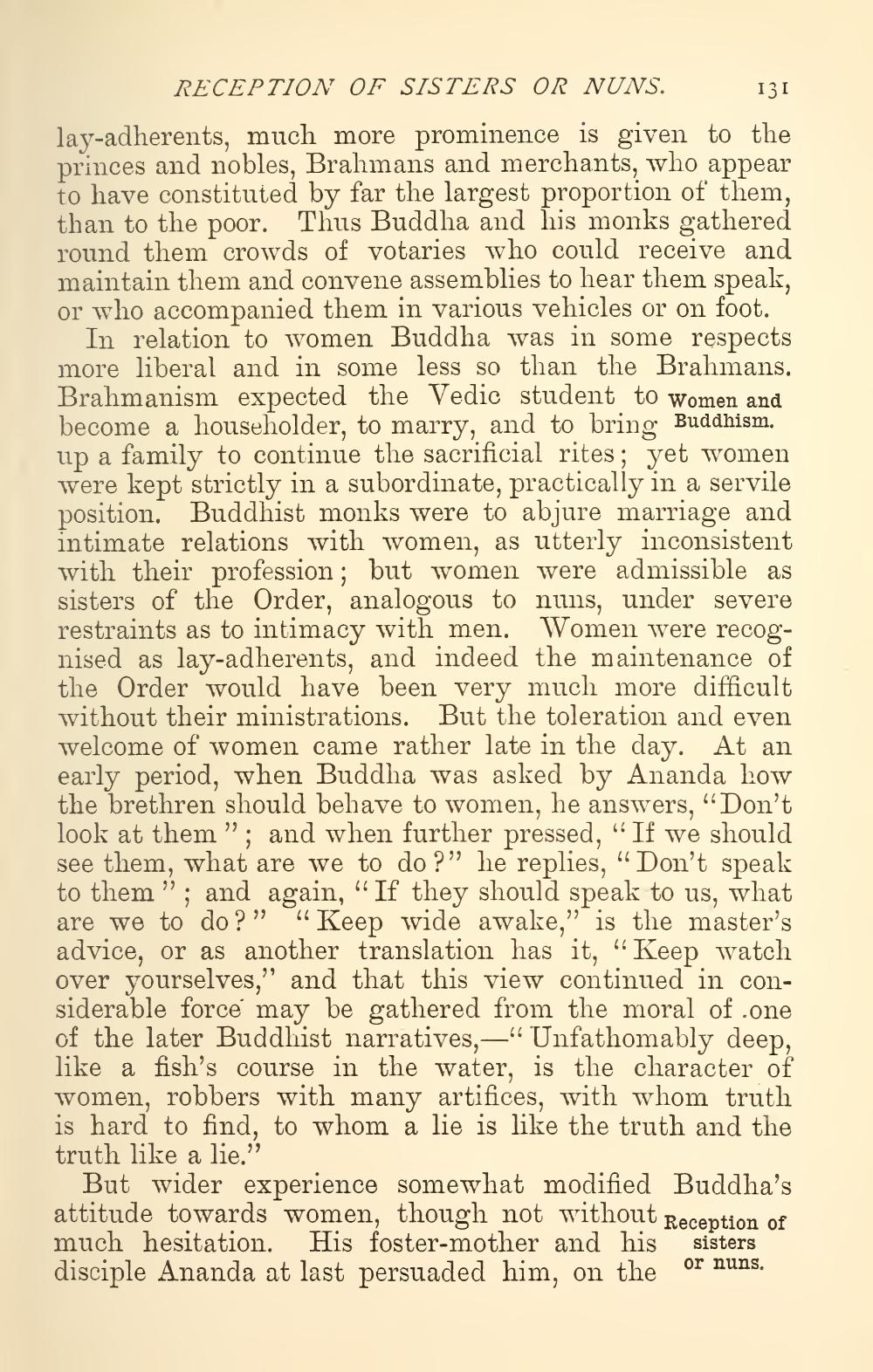________________
RECEPTION OF SISTERS OR NUNS. 131 lay-adherents, much more prominence is given to the princes and nobles, Brahmans and merchants, who appear to have constituted by far the largest proportion of them, than to the poor. Thus Buddha and his monks gathered round them crowds of votaries who could receive and maintain them and convene assemblies to hear them speak, or who accompanied them in various vehicles or on foot.
In relation to women Buddha was in some respects more liberal and in some less so than the Brahmans. Brahmanism expected the Vedic student to women and become a householder, to marry, and to bring Buddhism. up a family to continue the sacrificial rites; yet women were kept strictly in a subordinate, practically in a servile position. Buddhist monks were to abjure marriage and intimate relations with women, as utterly inconsistent with their profession; but women were admissible as sisters of the Order, analogous to nuns, under severe restraints as to intimacy with men. Women were recognised as lay-adherents, and indeed the maintenance of the Order would have been very much more difficult without their ministrations. But the toleration and even welcome of women came rather late in the day. At an early period, when Buddha was asked by Ananda how the brethren should behave to women, he answers, "Don't look at them”; and when further pressed, “If we should see them, what are we to do ?” he replies, “Don't speak to them"; and again, “If they should speak to us, what are we to do?" "Keep wide awake," is the master's advice, or as another translation has it, “Keep watch over yourselves," and that this view continued in considerable force may be gathered from the moral of .one of the later Buddhist narratives,—“ Unfathomably deep, like a fish's course in the water, is the character of women, robbers with many artifices, with whom truth is hard to find, to whom a lie is like the truth and the truth like a lie."
But wider experience somewhat modified Buddha's attitude towards women, though not without Reception of much hesitation. His foster-mother and his sisters disciple Ananda at last persuaded him, on the




